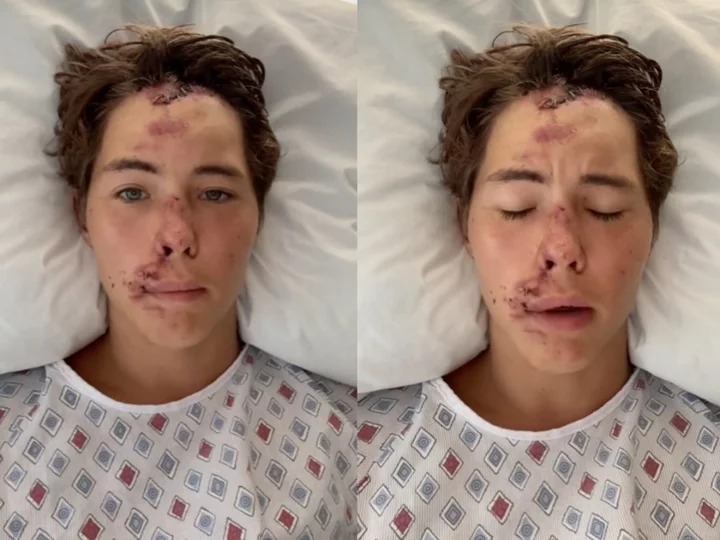
Influencer Caleb Coffee hospitalised after falling off cliff in Hawaii
Influencer Caleb Coffee has been hospitalised after falling off a cliff during a hike in Hawaii, according to a GoFundMe page created by his sister. On Thursday 17 August, Coffee’s sister Peyton created the page, where she revealed that her brother is in the intensive care unit with a spinal fracture and broken femur, elbow and wrist. His sister also states that they don’t know the “extent” of his injuries yet, but that they also include “multiple gouges and burns throughout his entire body” According to the GoFundMe, Coffee was hiking with three friends when he “slipped and fell off a 60-80ft cliff onto lava rock”. He was reportedly airlifted to a nearby hospital, with Peyton telling fans that her brother “hasn’t been able to hold down food”. “The medics have informed us more injuries will most likely pop up over the next few weeks…” she added. As of Friday, the GoFundMe has raised $16,000 of its $100,000 goal. Coffee, who has more than 11 million followers on TikTok, updated his followers with a video posted to the platform on Thursday, where he wrote that it’s a “miracle” he’s alive. “Hey everybody, I just want to give a massive thank you to anyone that’s trying to help me or support me right now and I wanted to let you guys know a little update I just found out, that my neck and spine is not broken. Phew,” the TikToker said in the video, which he filmed from his hospital bed. More follows... Read More Schoolboy almost dies from swallowing magnets for TikTok challenge Woman shares honest review of New York City apartment TikTok mom slammed after making 5-year-old son run in 104 degree heat
2023-08-18 22:45
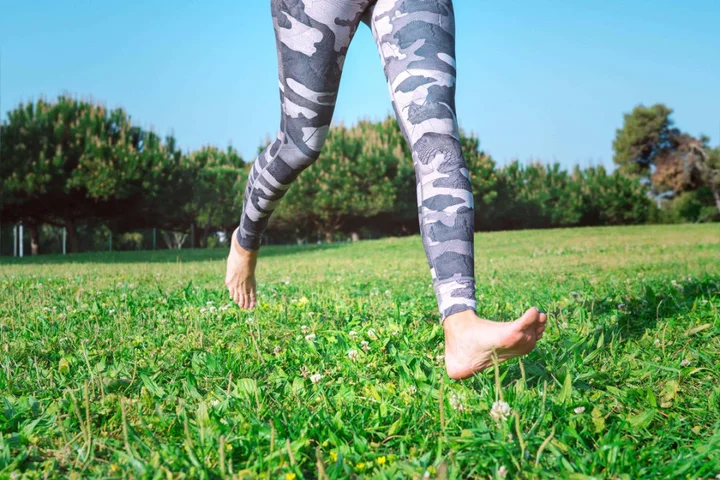
Tempted to try barefoot running? Here’s what you need to know
Barefoot running seems to be rising in popularity, with fans hailing its many benefits – and some even tackling entire marathons without shoes. The thought of bare soles beating the pavement may leave many people wincing, and there are certainly things to consider before giving it a go. But the idea of exploring the most natural way to move – with our primitive bare feet on the ground – could be tempting too. So, what is the deal with barefoot running, and is it worth it? Are there any benefits to barefoot running? “Barefoot running really helps us reconnect with nature,” says Sammy Margo, a physiotherapist working with muscle and joint care specialists Deep Freeze and Deep Heat. For many, this is a big part of the appeal – and some fans of barefoot running say they’ve experienced benefits to their running form too. It’s important to remember our bodies may all respond differently to pressure and force, however, so how we react to barefoot running may vary. “The body, muscles, and joints will take on the ground pressure differently,” says podiatrist Dina Gohil, brand ambassador for CCS Foot Care. “Some people may experience improvement in pain in certain areas, and vice versa. The body works together and force is distributed to the best of your body’s ability to enable the movement you’re trying to achieve.” If you can physically feel your feet hitting the ground however, in theory, your body may become more aware of those forces and movement patterns. “Going shoe-free can help with your awareness of the position and movement of your body – proprioception. Exercising barefoot can also help restore natural running patterns and strides,” Gohil explains. For example, she adds: “Being barefoot can actually allow you to be more conscious of how the heel strikes on the ground, and at what pace and strength. So doing activities barefoot can help strengthen the foot and ankle, improve muscle strength, increase flexibility, and allow for proper movement.” Will you notice other changes? According to barefoot runners, the soles of your feet will also become a lot more resilient over time. “The best way to toughen feet is to try and walk on as many different surfaces as possible. Some people have also used newspapers on the ground to walk on to help with this process,” says Gohil. The muscles in your legs will develop differently too. Margo says: “Running barefoot also activates smaller muscles in our legs and feet, helping to improve strength and overall mobility.” Are there any risks or cons to think about? While many runners experience a range of benefits from going barefoot, there are certainly potential risks to consider. First and foremost, there’s the risk of wounding yourself if you stamp on something sharp – so always be sensible when choosing where to run barefoot. “Until your feet become acclimatised, you may find you are more prone to blisters until firmer skin or calluses have formed,” says Gohil. “There is also the increased risk of developing plantar fasciitis on the sole and heel of the foot. Other problems might include blisters, callus, cuts, infection, Achilles tendonitis, tight lower leg muscles, or stress fractures.” Margo adds: “As our muscles are working harder, [they] may become shorter and tighter, and you may feel some pain initially when you start barefoot running.” Having the support and comfort of a well-fitting running shoe can also be vital for many runners, particularly if you have a history of injuries or joint problems – so it’s advisable to speak with a healthcare professional before you attempt barefoot running. Read More Charity boss speaks out over ‘traumatic’ encounter with royal aide Ukraine war’s heaviest fight rages in east - follow live How can you get rid of acne scars? From serums to laser treatments, experts talk through the options 5 viral TikTok fake tanning tips for the perfect summer glow Not got the A-level grades you needed? Here’s how to get started with the clearing process
2023-08-18 15:48

Rosalynn Carter marks 96th birthday at home with the former president, butterflies and ice cream
Rosalynn Carter is celebrating her 96th birthday at home with her husband, former President Jimmy Carter, and other family members, while the surrounding community commemorates the former first lady’s years of public health advocacy
2023-08-18 12:21
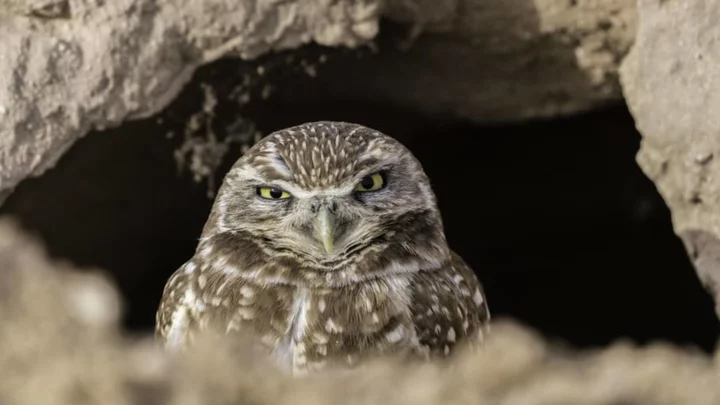
16 Animals With Delightfully Obvious Names
From burrowing owls to smooth green snakes, these animal names don't leave much to the imagination.
2023-08-18 06:24

Investment scams are everywhere on social media. Here's how to spot one
Social media is full of scammers promising guaranteed returns on investment, and consumers lost $3.8 billion to them last year just in the U.S., according to the Federal Trade Commission
2023-08-17 23:24
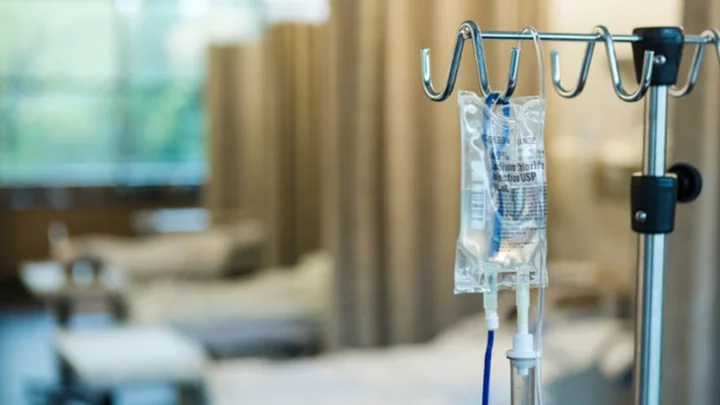
What You Should Know About Necrotizing Fasciitis, the Flesh-Eating Bacterial Infection
Here's how to stay safe when you take a dip at beaches, lakes, or rivers.
2023-08-17 23:16
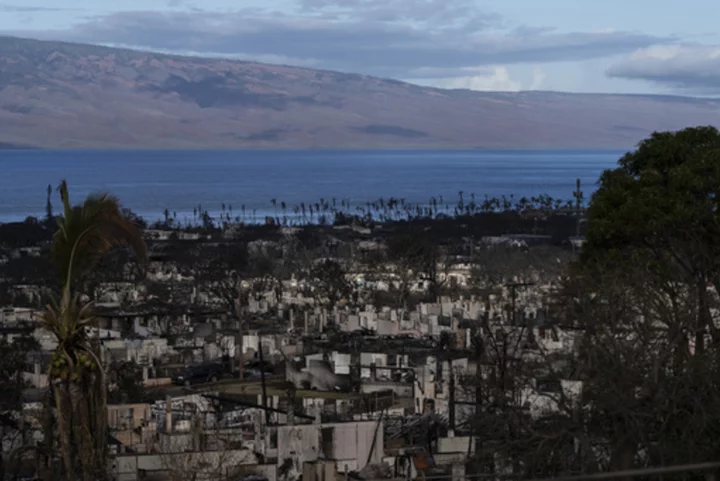
Fires and other disasters are increasing in Hawaii, according to this AP data analysis
Hurricane-fueled flash floods and mudslides
2023-08-17 20:54

Florida art museum sues former director over forged Basquiat paintings scheme
A central Florida art museum that was raided last year by the FBI over an exhibit of what turned out to be forged Jean-Michel Basquiat paintings has sued its former executive director and others, claiming they were part of a scheme to profit from the sale of the fake artwork
2023-08-17 05:54
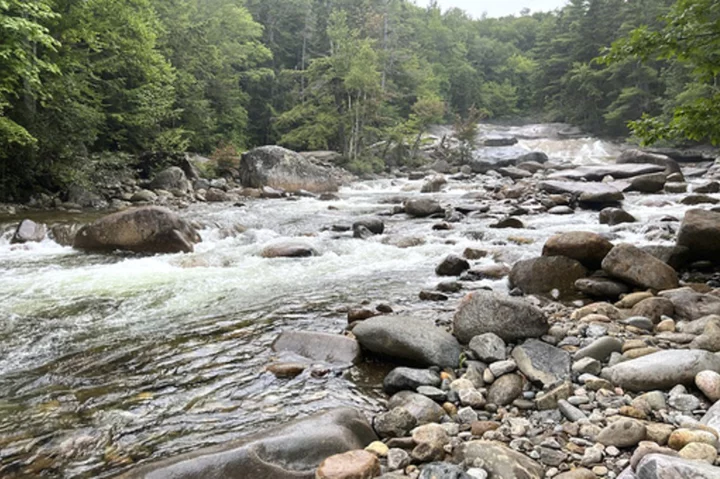
A family outing at a popular waterfall turns grim as mother drowns trying to rescue son
Authorities say a Massachusetts mother drowned trying to rescue her 10-year-old son as he was being pulled by the current at a popular New Hampshire waterfall
2023-08-17 00:47
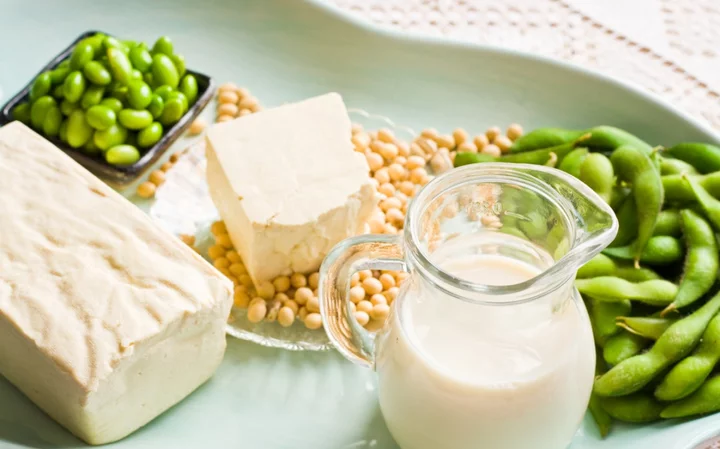
Vegan diet can reduce hot flashes associated with menopause, study suggests
Plant-based diets with a sufficient amount of soy can reduce hot flashes while also aiding weight loss, according to the Women’s Study for the Alleviation of Vasomotor Symptoms (WAVS) trial. A study published by the North American Menopause Society in the journal Menopause found that a diet intervention is about as effective as hormone replacement therapy for reducing menopausal hot flashes, without the associated health risks. “We do not fully understand yet why this combination works but it seems that these three elements are key—avoiding animal products, reducing fat, and adding a serving of soybeans,” explained lead researcher Neal Barnard, MD, president of the Physicians Committee and adjunct professor at the George Washington University School of Medicine. “Our results mirror the diets of places in the world, like pre-Westernized Japan and modern-day Yucatán Peninsula, where a low-fat, plant-based diet including soybeans is more prevalent and where postmenopausal women experience fewer symptoms.” To conduct the study, researchers recruited 84 postmenopausal women that reported episodes of hot flashes two or more times per day. Participants were randomly assigned into two groups. One group was an intervention group that was on a low-fat vegan diet consuming half a cup of cooked soybeans daily, while the other was a control group with no dietary changes for 12 weeks. After 12 weeks, researchers found that those on a vegan diet had a 88 per cent decrease in moderate to severe hot flashes and had lost an average of eight pounds. This is about the same success rate as hormone replacement therapy (HRT), which is usually 70 to 90 per cent effective against hot flashes. The trial was split into two parts, the first being published in 2021 and the second being published this year. It successfully addressed the point that there may be positive changes seen in menopause relief due to seasonal temperature variations. The first trial, which was conducted during the autumn season raised the question of whether this symptomatic improvement might have been attributed to cooler temperatures. But women who began the study as the weather warmed up in the spring had the same benefit, ruling out the effect of the temperature outside. “These new results suggest that a diet change should be considered as a first-line treatment for troublesome vasomotor symptoms, including night sweats and hot flashes,” explains Dr Barnard. Dr Barnard and the team agree said their results not only support putting diet and lifestyle at the forefront of the conversation with hot flash relief during menopause but also for other common complications such as weight gain and chronic disease implications. “This study demonstrates the effectiveness of a dietary intervention for menopausal symptoms,” Dr Barnard said. “As well, it is precisely the diet that would be expected to reduce the health concerns of many women reaching menopause: an increasing risk of heart disease, breast cancer, and memory problems.” The findings are published in the journal Menopause. Read More What are the symptoms of menopause and how can they be relieved? What’s the link between the menopause and anxiety? Menopause affecting your mental health? Experts reveal what to do What I gained (and lost) by walking 10,000 steps each day for 5 months Raven-Symoné details cosmetic surgeries she had before she turned 18 Nearly half of US adults are interested in taking weight loss prescription drugs
2023-08-16 17:22
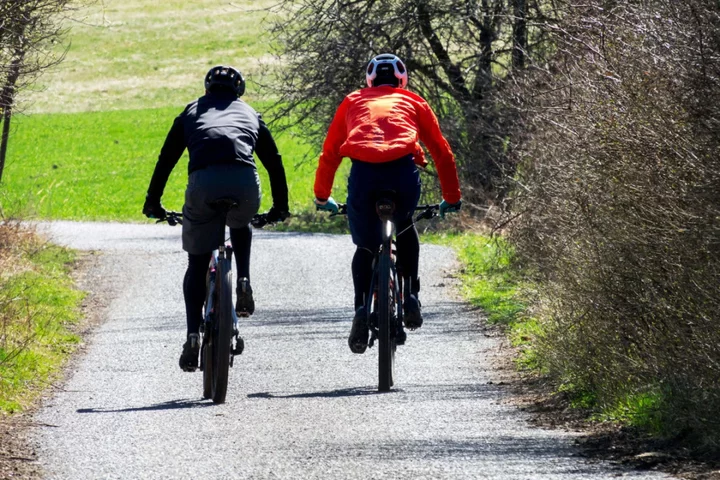
Men who cycle, jog or swim could cut risk of nine cancers – study
Male joggers, swimmers and cyclists could be cutting their risk of nine cancers, a new study suggests. Researchers found that men with good cardiorespiratory fitness are far less likely to go on to develop cancers of the head and neck, stomach, pancreas, liver, bowel, rectum, kidney, lung and oesophagus. Cardiorespiratory fitness refers to a person’s ability to do aerobic exercise, such as running, cycling and swimming for sustained periods, or even to climb stairs. The new study, published in the British Journal of Sports Medicine, saw experts from Sweden track just over a million men for an average of 33 years. The men involved in the study were conscripted to military service in Sweden between 1968 and 2005. At the start of their conscription the men underwent a battery of tests assessing a number of factors including their height, weight, blood pressure, muscle strength and cardiorespiratory fitness. During the follow-up period, about 84,000 developed cancer. Researchers found that, compared with those with low cardiorespiratory fitness, men with a higher level of cardiorespiratory fitness were: – 19% less likely to develop head and neck cancer.– 39% less likely to develop cancer of the oesophagus (food pipe).– 21% less likely to develop stomach cancer.– 40% less likely to have liver cancer.– 18% less likely to develop bowel cancer and 5% less likely to develop cancer of the rectum– 20% less likely to develop kidney cancer.– 42% less likely to develop lung cancer.– 12% less likely to develop pancreatic cancer. “These results could be used in public health policymaking, further strengthening the incentive for promoting interventions aimed at increasing [cardiorespiratory fitness] in youth,” the authors wrote. The researchers did find that higher cardiorespiratory fitness was linked to a slight (7%) increased risk of prostate cancer and a 31% increased risk of skin cancer. A previous study examining the same data set suggested the slight increase in risk for prostate cancer was not linked to a higher rate of aggressive prostate cancer or prostate cancer death, and could be attributable to increased screening. The authors suggested a higher skin cancer rate could be explained due to “higher UV exposure”. Read More Charity boss speaks out over ‘traumatic’ encounter with royal aide Ukraine war’s heaviest fight rages in east - follow live Why are wellbeing experts concerned about TikTok’s ‘lazy girl job’ trend? Red flags you might be missing about your child’s online safety Rumer Willis says she is ‘grateful’ to her body following birth of daughter
2023-08-16 16:52
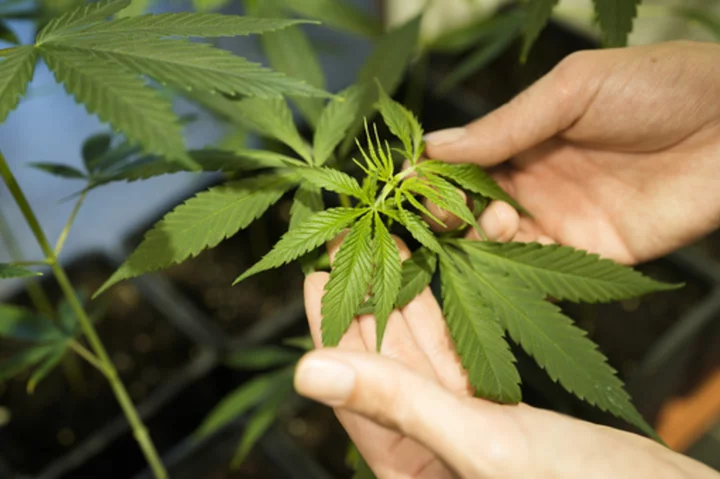
Germany's Cabinet is set to approve a plan to liberalize rules on cannabis possession and sale
Germany’s Cabinet is set to approve a plan to liberalize rules on cannabis, setting the scene for the European Union’s most populous member to decriminalize possession of limited amounts and allow members of “cannabis clubs” to buy the substance for recreational purposes
2023-08-16 14:24
